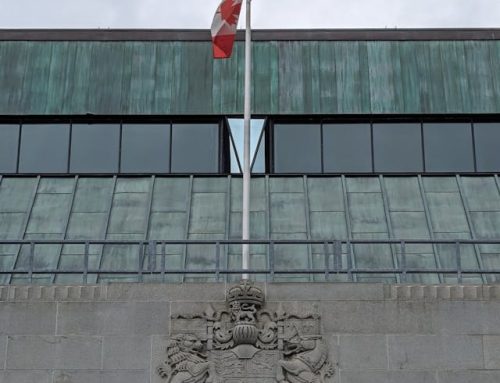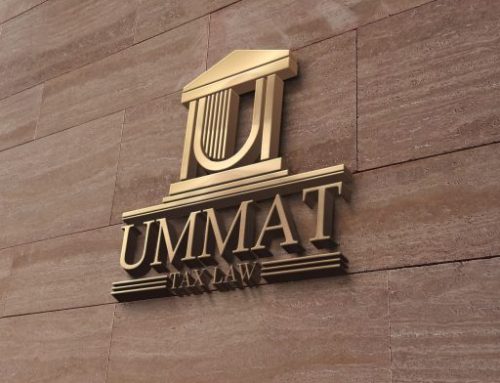Construction Materials Supplier Must Disclose Customer Information
Construction Store Ordered to Disclose Customer Information to the CRA
Roofmart Ontario Inc. v. Canada (National Revenue) 2020 FCA 85
Summary
This is a critical case for those working in the construction industry and to the professionals advising them.
Construction Store Ordered to Disclose Customer Information to the CRA
A big company has been forced by the Courts to disclose customer information, including names, business numbers, transaction details and bank account information.
This case deals with unnamed persons requirements under subsections 231.2(2) and (3) of the Income Tax Act, R.S.C. 1985, c. 1 (5th Supp.) and its equivalent subsection 289(3) of the Excise Tax Act, R.S.C. 1985, c. E-15.
Background
The context of this case is quite interesting. At the Federal Court, the evidence was that tax compliance was a significant problem in the residential construction sector of the Canadian economy. A study undertaken by Statistics Canada identified the construction industry as part of the “hidden sector” and a report from the Ontario Ministry of Labour estimated that 28% of the construction industry’s economic activity was unreported or underreported and that as much as one-fifth of residential construction takes place unreported.[1]
Roofmart Ontario Inc. (“Roofmart”) is one of the largest suppliers of roofing and building materials in Ontario. To address the issue of compliance in the construction industry, the CRA identified Roofmart for the purposes of an unnamed persons requirement due to the size of its business, its clientele, and its geographic location.
CRA Goes to Court
The Minister of National Revenue (“Minister”) applied to the Federal Court for an authorization by a judge to issue unnamed persons requirements on Roofmart. The application targeted Roofmart customers whose total annual purchase and/or billed amount was $20,000 or greater for the period from January 1, 2015, to December 31, 2017; and customers whose total annual purchase and/or billed amount was $10,000 or greater for the period from January 1, 2018, to June 30, 2018. Roofmart itself was not under tax audit at the time the Minister made the application. The Minister sought names, business numbers transaction details, and bank account information of Roofmart’s customers from Roofmart.
Pursuant to subsection 231.2(3) of the ITA, the Minister must satisfy the Federal Court that a) the person or group is ascertainable and b) the requirement is made to verify compliance by the persons in the group with any duty or obligation under the ITA.
Court Grants CRA’s Application
The Federal Court granted the Minister’s application on the basis that the Minister had satisfied the relevant legislative conditions. In the Federal Court’s view, the total annual purchase requirement was sufficient to establish the target group of residential and commercial contractors. As for the second part, the judge was satisfied that the Minister sought the information to verify the unnamed persons’ compliance with the ITA.
Roofmart appealed the decision to the FCA.
Decision & Analysis
On appeal to the FCA, Roofmart made three principal arguments.
Ultra Vires Argument
First, Roofmart argued the application was ultra vires because it was not brought by a person authorized by the statute to do so. Roofmart argued it was not the Minister who made the application, but rather it was Mr. Blackmore, the CRA official who swore the affidavit in support of the application, and Mr. Blackmore did not have delegated authority to bring the application.
The FCA summarily dismissed this argument. The Notice of Application was brought by the Minister and the Notice indicated why the Minister sought the order. The Notice of Application “…notes, in paragraphs (e) and (f), that the Minister seeks the information to verify that certain of Roofmart’s customers have complied with their duties and obligations under the ITA and ETA. Because the Minister does not know the identities of Roofmart’s customers, she seeks judicial authorization to impose requirements on Roofmart. The notice of application is signed by counsel for the Attorney General, who is referred to in the notice of application as “counsel for the applicant”, with the applicant clearly stated as being the Minister.”[2]
Roofmart had further alleged at the hearing that there was no evidence before the Court that Minister’s counsel had the Minister’s authority to bring the application. This argument failed. The FCA reiterated the trite principle that once retained, counsel have all the authority to take all necessary steps in litigation for their clients.[3] The FCA further cautioned that such an argument would be more appropriate in the context of a motion.
Statutory Argument
Second, Roofmart argued that the Federal Court erred in its application of the statutory criteria. Specifically, it was an error to find that the unnamed persons were “ascertainable” within the meaning of paragraph 231.2(3)(a) of the ITA, and that the information was required to “verify compliance” within the meaning of paragraph 231.2(3)(b) of the ITA.
Roofmart relied on the Hydro-Quebec[4] decision where the Court held that “[w]hen the group is generic and has no connection to the ITA, and information can be requested outside of the scope of the ITA (such as identifying the business clients of a public utility) there is no longer any limit on the fishing expedition”.[5] Roofmart characterized this as a legal test. The FCA disagreed and stated that those comments were the Court’s analysis in that instance of whether there was an ascertainable group and whether the information was required to verify compliance.
In the FCA’s view, the Federal Court made no reviewable error in finding that Roofmart’s customers were an ascertainable group. Importantly the FCA indicated that the validity of the unnamed persons requirement was not affected by its potential scope, not was it affected by the fact that the requirement may “…sweep in some of Roofmart’s customers who are neither commercial nor residential construction contractors but nevertheless buy large volumes of roofing materials. The existence of some customers who may be of no interest to the Minister for the purposes of verifying compliance cannot determine whether an order should issue. This argument would if given effect, sterilize the Minister’s ability to do horizontal or sector-wide assessments of tax compliance.”[6]
Roofmart’s argument that the Minister failed to prove that the information sought would verify compliance with the ITA was also dismissed. Roofmart argued that to satisfy this condition, the Minister must demonstrate a tax audit is underway. The FCA disagreed and cited GMREB[7] to support the position that a pending or existing tax audit is not a precondition to the exercise of power under the relevant provision.
Burden of Proof Argument
Third, Roofmart argued the Federal Court applied the incorrect burden of proof to its assessment of the Minister’s application. Roofmart argued that a higher duty was required. The FCA dismissed this argument since the case law relied on by Roofmart was not relevant since it was written in an era where unnamed persons requirements were made ex parte (pre-2013). Here Roofmart was aware of the Minister’s intention to seek the order, had an opportunity to comment on the draft order, and participated in the application process.
Roofmart’s appeal was therefore dismissed.
Key Takeaways
Roofmart argued that the Minister must disclose all relevant evidence pertaining to the requirement, including the purpose for which the information is collected and the use to which the information will be put. The Court disagreed and stated that Roofmart was essentially requesting that the Court qualify the clear wording of section 231.2 by reading in broader concepts such as the requirement of balancing privacy rights against the requirement that the Minister have the requisite tools to administer the Act.
Parliament has already done that balancing and made its decision. It has left the Federal Court the obligation of ensuring that two factual prerequisites are established in the evidence on a balance of probabilities. To read in limitations as urged would undermine consistency, predictability, and fairness in the application of the Act (Canada v. Lehigh Cement Limited, 2014 FCA 103, [2015] 3 F.C.R. 117 at paras. 41-42).[8]
Roofmart further argued that because UPR orders are an intrusion into the private business affairs of individuals and may require a party like Roofmart to breach its obligation to protect the confidentiality of their customers’ information, the ex parte standard of disclosure should none the less apply. The FCA rejected this argument by confirming the principle that in a self-reporting system, taxpayers have a low expectation of privacy in their business records relevant to the determination of their tax liability[9].
[1] Roofmart Ontario Inc. v. Canada (National Revenue) 2020 FCA 85 (“Roofmart”), at para. 3.
[2] Roofmart, at para. 3.1
[3] Relying on Sourani v. Canada, 2001 FCA 185 at para. 4; and Bandag Inc. v. Vulcan Equipment Co Ltd. et al., [1977] 2 F.C. 397 (T.D.) at para. 8).
[4] Canada (National Revenue) v. Hydro-Québec 2018 FC 622 (“Hydro-Québec”)
[5] Hydro-Québec, at para. 78.
[6] Roofmart, at para. 40.
[7] Canada (National Revenue) v. Greater Montréal Real Estate Board, 2007 FCA 346, [2008] 3 F.C.R. 366, leave to appeal to SCC refused, 32404 (24 April 2008)(GMREB)
[8] Roofmart, at para. 21.
[9] Redeemer Foundation v. Canada (Minister of National Revenue) 2008 SCC 46 at para. 25.




